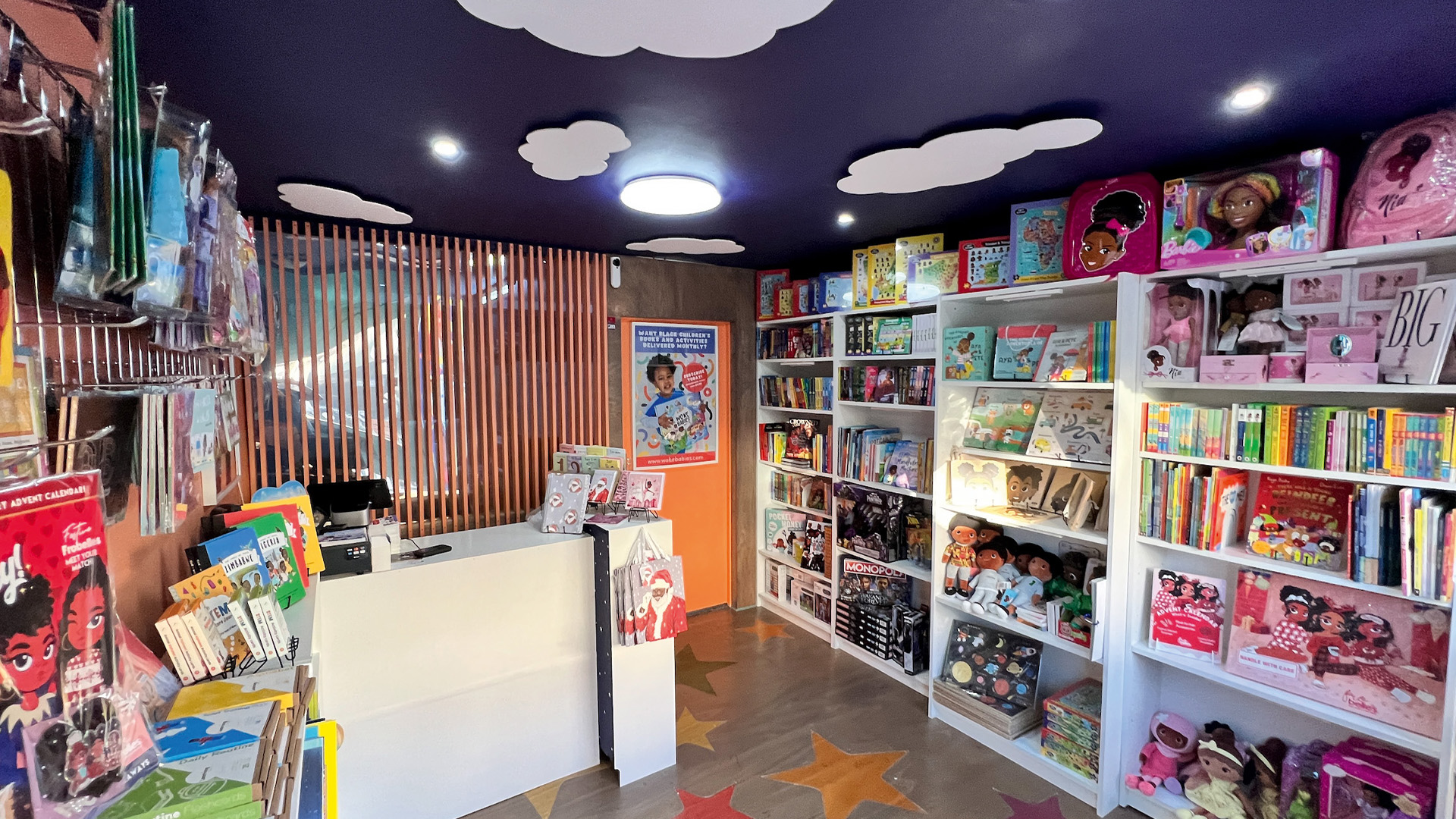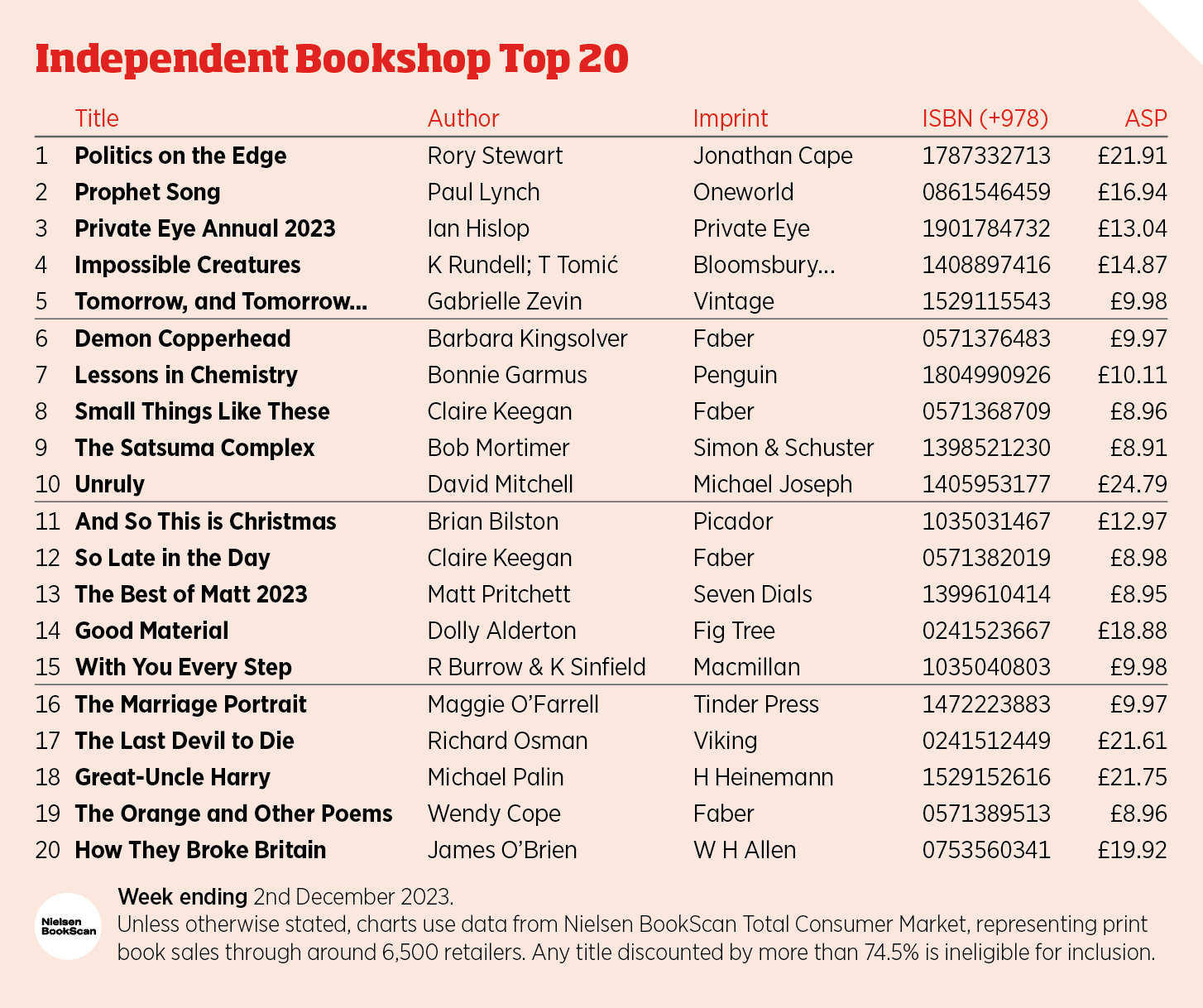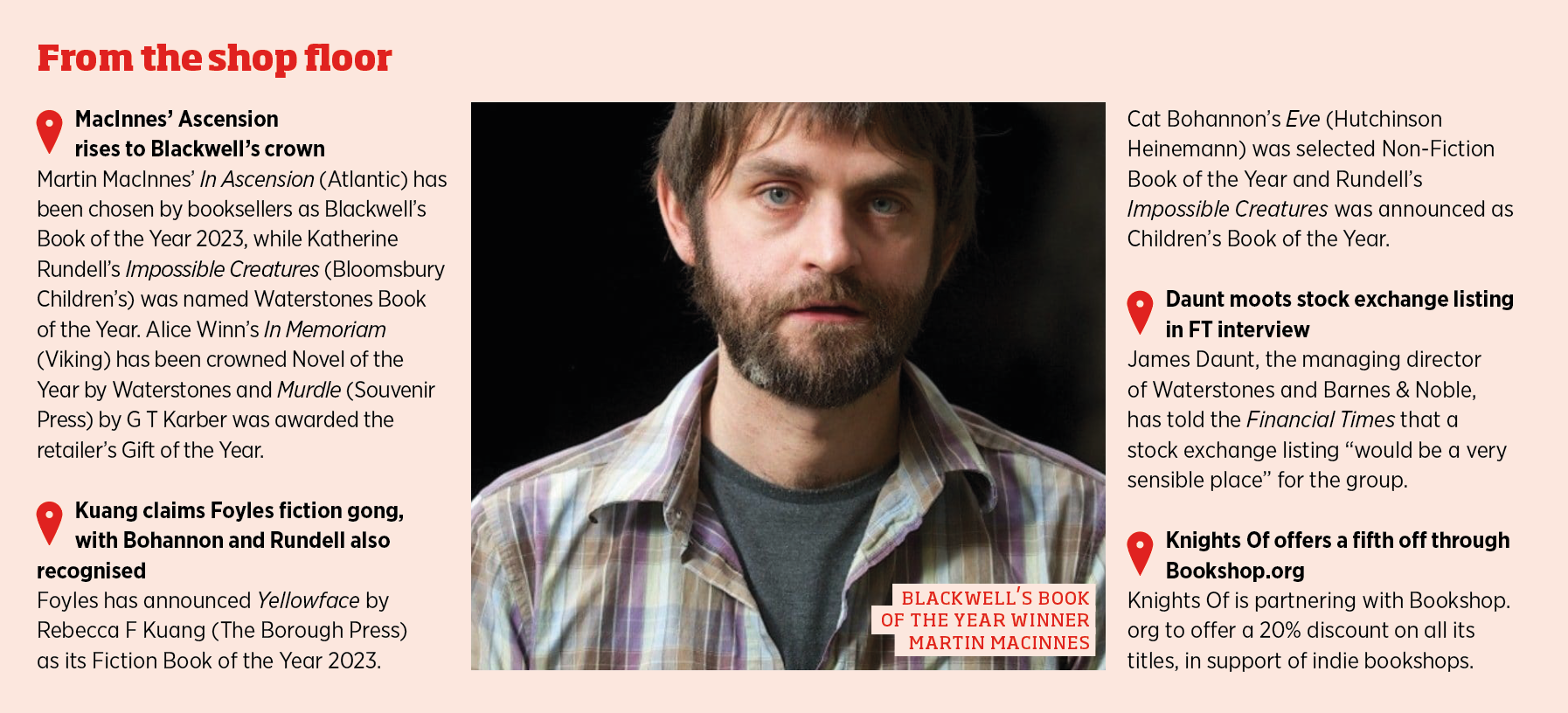You are viewing your 1 free article this month. Login to read more articles.
Bookshop Spotlight: Melanin Dreams
Meet the bookshop that aims to inspire young readers to see themselves represented in books.
126 Norwood High Street, Norwood, London SE27 9NH
When Melanin Dreams launched in July, families travelled from as far as Birmingham to celebrate the shop’s opening at an event featuring illustrator Dapo Adeola. Children got the chance to see themselves in the books on the shelves and to be in a physical space dedicated to them – a “world where childhood dreams come to life”.
“The grand opening of our shop was nothing short of amazing, with queues stretching around the corner, a testament to the anticipation and excitement within the community,” says Kelly-Jade Nicholls, the founder of Woke Babies and Melanin Dreams. “What warmed our hearts was the diverse mix of people standing in line, showcasing the widespread appeal of our mission.”
The Woke Babies subscription box, which features books with Black protagonists, came before the shop. It was designed to deliver books to young readers who need to read about characters that represent the range of their experiences and inspire them to imagine worlds beyond their own. “We aim to foster a love for reading and ignite the flame of imagination and reading simply for pleasure in Black children,” Nicholls explains.
“Recognising the scarcity of diverse literature for young children and the challenge faced by parents in sourcing such content, Woke Babies makes it easier for parents through us doing the work,” the founder tells me. “Many exceptional stories in this category often go unnoticed due to limited visibility, and our mission is to bring these narratives into the spotlight, supporting diverse authors and illustrators by facilitating the distribution and access to their amazing stories.”
The Melanin Dreams bookshop is the latest iteration of this goal. Nicholls’ aim was to create a space that she needed to see when she herself was a child. She recalls walking into bookshops and not seeing herself in the books—an experience repeated with dolls that did not look like her. “The distinct name, Melanin Dreams, was chosen to encapsulate a space that symbolises a world where childhood dreams come to life, fostering inspiration and encouraging young minds to aspire towards boundless possibilities,” she tells me. “The significance lies not just in providing a platform for diverse stories but in creating an immersive experience that resonates with the multifaceted nature of a child’s imagination.”
In its first month of trading, the shop saw an “influx of customers” and continues to have “a steady flow” of visitors. Alongside Nicholls, booksellers Adrienne Thomas and Alison Williams work to serve customers. “We’re in a vibrant community – our shop has become a focal point for locals”, Nicholls says.
The team has noticed that cost-of-living pressures have shifted the buying habits of customers, as people have been opting for paperbacks over pricier hardbacks. Bookshops largely operate on a “sale and return” basis, which offers booksellers less of a discount on purchases but enables them to return unsold books. Instead, Melanin Dreams buys some books as “firm sale”, and while this means that they cannot return the stock, they get a better discount. “As a bookshop navigating these economic challenges, we have leaned towards firm sales on our book acquisitions,” Nicholls says. “This helps us secure better discounts, and strike a balance between offering affordability to our customers and ensuring our profitability,” she explains.
Publishers have been supportive of the bookseller’s work and the founder tells me that opening the shop has enabled her to develop a stronger relationship with publishers. “Previously, we felt a bit left out of the loop, especially with our subscription service, but with the addition of the shop, publishers have been more engaged. We’re now regularly pitched new titles and have the pleasure of hosting visits from various publishing teams.”
While the booksellers’ overall experience has been positive since launching the shop, the founder says there is “room for improvement” to increase collaboration – such as publishers ramping up promotion of backlist stock. “Understandably, the focus tends to be on upcoming releases, but there is a treasure trove of diverse books from the past that might not receive the marketing attention they deserve,” she explains. “As niche booksellers, we often stumble upon these hidden gems during our research, realising they are from publishers we have engaged with,” Nicholls adds. “A co-ordinated effort to bring attention to these previously released gems would not only expand the reach of these titles, but also enrich the diversity of our offerings.”
Nicholls spotlighted publishers Macmillan and Walker, which supported the bookshop’s recent initiative to host a Halloween giveaway. Children were given the treat of stories, gifted with books that the booksellers provided with the help of publishers. “Situated in a low-income neighbourhood, these events hold particular significance for us,” Nicholls tells me. “It’s not just about bookselling; it’s about building bridges within our community and making literature an accessible and enriching experience for all.”
While online sales drive a big part of the bookshop’s sales, having a physical store has its own benefits. One of the positive aspects of a bricks-and-mortar space is that it enables the booksellers to build a sense of community. Looking ahead, Nicholls says the goal is to “establish a strong foundation” while enjoying the experience of having their own bookshop. She tells me that there is scope to open more shops in other locations, as the response to Melanin Dreams has been so positive. “We see this as a testament to the positive impact we are making and consider it a key goal to explore opportunities for growth and extend our reach to new communities.”

















